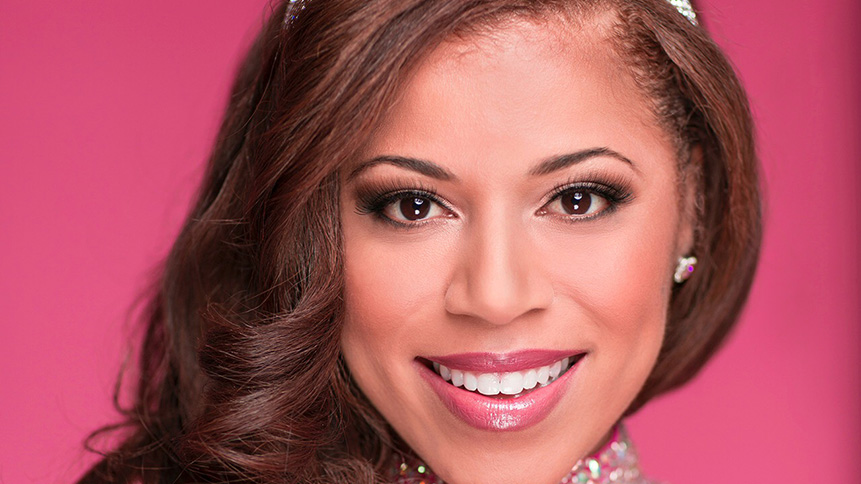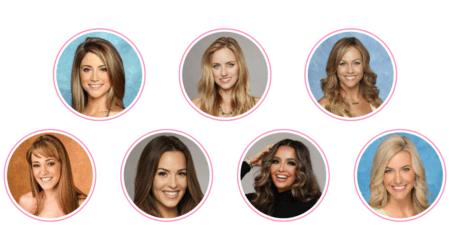
When Nichelle Sublett got married in 2013, she and her husband Harold decided to get off the birth control pill and see what happened. At this time, they weren’t actively ‘trying’ but they also weren’t preventing a possible pregnancy. Never did they imagine that it would take them six years to welcome their now one month old baby.
As “Mrs. Carolina” 2017 and 2018, Nichelle knew she had a unique opportunity to use her platform to break the taboo of infertility. She lives by the quote, “Be the change you wish to see in the world.”
Here’s her story:
Q: What’s been your path to parenthood and infertility story, in a nutshell?
After I was crowned Mrs. North Carolina in Nov. 2017, I knew I had to take that opportunity to make fertility awareness my platform. Each queen promotes and raises awareness all year for a cause close to her heart. I always knew I would share my story, but I thought it would be after I overcame infertility, and had 2.5 perfect children.
My infertility journey has been a very long one. After 6 months off the pill, I was diagnosed with PCOS and told by my doctor that I wasn’t ovulating after a series of tests. What followed that appointment included five more years of medicated cycles, IUIs, IVF, yoga, mediation, acupuncture, gluten-free, dairy-free diets, which resulted in five pregnancies, all ending in heartbreaking miscarriages. We even suffered miscarriages after 2 naturally occurring pregnancies during this time.
Our last embryo transfer was in December 2018, and it was our 3rd time trying an embryo transfer. This one stuck, and we were over the moon with excitement! We welcomed our miracle baby in August.
After the pageant, I felt a strong calling not to wait until that point, and to be bold and courageous in putting a face and voice with this disease. I needed to come out of the shadows and silence to help other women, and couples realize they’re not alone, and that there’s hope.
Q: What motivated you to make your platform about raising awareness around infertility and pregnancy loss? How has the response been when you’ve spoken on these topics?
After the pageant, I felt a strong calling not to wait until that point, and to be bold and courageous in putting a face and voice with this disease. I needed to come out of the shadows and silence to help other women, and couples realize they’re not alone, and that there’s hope.
The response has been amazing. I’ve received so many texts, calls, and social media messages from other women and men who are experiencing their own journeys with infertility. They have thanked me for being so transparent and visible, and letting others know how prevalent infertility actually is, especially among women of color. There’s a common misconception that Black women don’t experience infertility. Nothing could be further from the truth.
The fertility community truly wrapped their arms around me, and supported me in every way. I’ve also heard from women who went straight to their doctors for fertility assessments because they were so moved by my #startasking campaign. These stories and anecdotes validate my reasons for going public with my own journey.
(People) have thanked me for being so transparent and visible, and letting others know how prevalent infertility actually is, especially among women of color. There’s a common misconception that Black women don’t experience infertility. Nothing could be farther from the truth.
Q: On your site, you say, “…spread hope to affected couples by demonstrating resilience and persistence”. How do you try and demonstrate and inspire these attributes when you speak on the topic of infertility?
I try to demonstrate resilience by never giving up, and continuing to live my life. For so long, I was ashamed and embarrassed, and fell into a deep depression a few years ago. I want to show others that while infertility is a part of my life, it is not my entire life, and having children was something I intended to keep pursuing until it happened. I was open to donor eggs, adoption, and myriad other ways to be a mother. Thankfully we didn’t have to go down those paths. I feel incredibly blessed to “beat” infertility, and for the opportunity to have experienced pregnancy.
Q: When you speak to people on the subject of fertility, what question do you typically get asked the most and how do you answer?
I often get asked when someone should seek out help from a fertility doctor. I usually answer with the recommended guidelines, which is after 6 months of trying if you’re 35 or older, and after a year of trying to conceive if you’re 34 or younger. I also throw in that fertility assessments can be done at anytime. My #startasking campaign encourages women to seek out fertility testing long before they’re ready to actually have children. I believe it opens up more options for the woman to plan for her future family. If there is an issue, it’s important to find out earlier rather than later.
There’s a statistic that says 91% of women who are currently working with a Reproductive Endocrinologist wish they had started sooner.
Q: What advice would you give to someone who is just starting their fertility journey is perhaps feeling overwhelmed?
I would encourage her to seek out support, and don’t hide in silence. I think joining a support group with other women who are going through the same thing is so powerful, and a few different infertility support groups really helped me over the years. I would also encourage her to lean on others who have been through this already. Instead of starting from ground zero, reach out to people for advice on fertility clinics or acupuncturists. There’s no need to navigate this on your own.
Follow Nichelle on Instagram @nichellewsublett or find her through www.nichellesublett.com.

Listen to stories, share your own, and get feedback from the community.


















